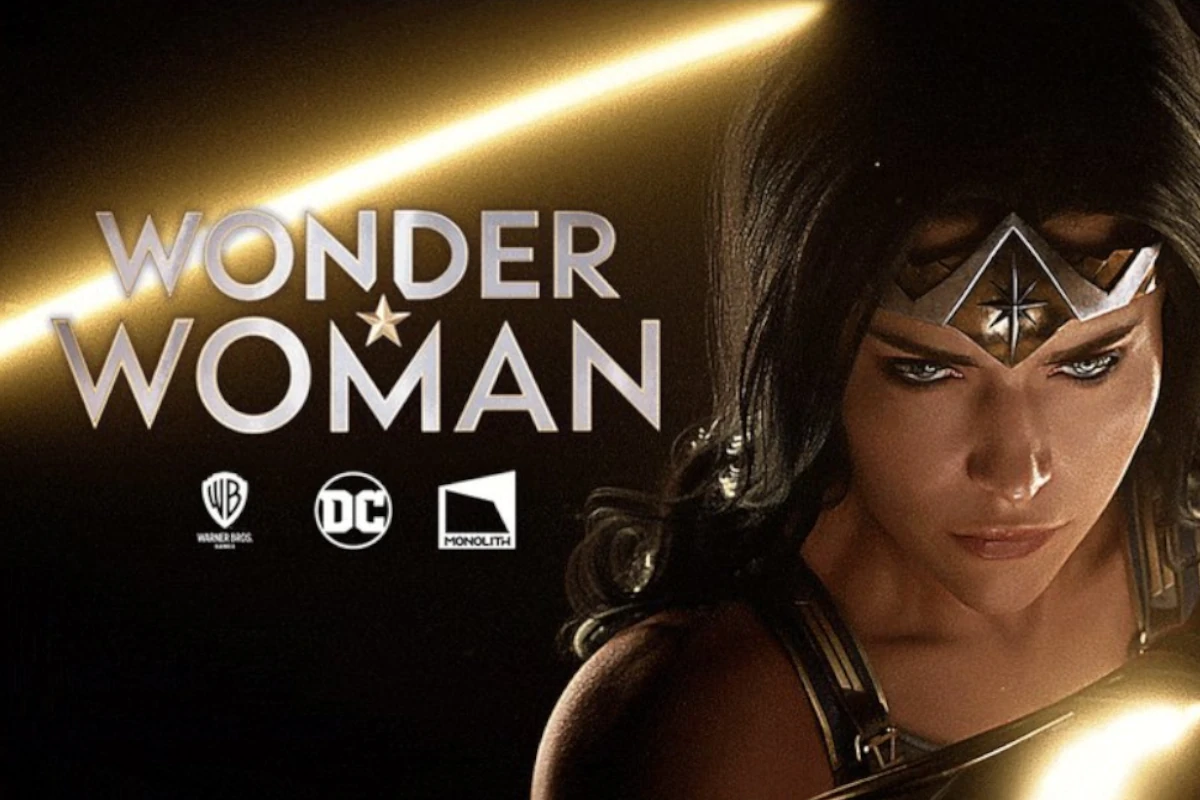\In a surprising move that has left fans and industry insiders reeling, Warner Bros. Games has officially canceled the long-awaited Wonder Woman video game, pulling the plug on what was set to be the Amazonian warrior’s first major solo adventure in the gaming world. The cancellation coincides with the closure of three key WB studios—Monolith Productions (the game’s developer), Player First Games, and WB Games San Diego—as part of a sweeping corporate restructuring aimed at realigning the company’s gaming priorities.
This decision not only extinguishes hopes for Wonder Woman’s gaming debut but also signals a broader shift in how WB approaches its interactive entertainment strategy.
The End of Wonder Woman’s Gaming Journey—For Now
First unveiled at The Game Awards in 2021, the Wonder Woman game quickly became one of the most anticipated DC titles in development. Promising an expansive open-world experience set in Themyscira and beyond, the game aimed to blend deep storytelling with the tactical combat mechanics for which developer Monolith Productions was famous.
Monolith’s reputation was solidified with its critically acclaimed Middle-earth: Shadow of Mordor and Shadow of War titles, both of which introduced the groundbreaking Nemesis System—an AI-driven mechanic that dynamically altered enemy behavior based on player interactions. Fans were eager to see how this system would translate to a superhero setting, particularly for a character as complex and powerful as Wonder Woman.
However, after over two years of development and reports of a budget surpassing $100 million, Warner Bros. abruptly canceled the project, leaving behind what could have been a milestone in DC gaming.
Why Did WB Pull the Plug?
While WB Games has not provided specific details regarding the cancellation, industry analysts point to several converging factors:
- Rising Development Costs: AAA game development has become increasingly expensive, with some projects costing upwards of $200 million. The Wonder Woman game, which promised an ambitious open world and complex AI systems, may have faced ballooning costs without guaranteed returns.
- A Strategic Refocus: WB has publicly emphasized its intention to double down on its most profitable franchises. Hits like Mortal Kombat and Hogwarts Legacy have proven to be massive moneymakers, while riskier projects tied to less-proven gaming IPs—like Wonder Woman—pose higher financial risks.
- Industry-Wide Turbulence: The gaming industry has seen a wave of studio closures and project cancellations in recent years. Rising inflation, shifting consumer behaviors, and the volatility of the live-service model have forced many publishers to scale back. WB’s move mirrors similar decisions made by companies like Embracer Group and Ubisoft, both of which enacted major cutbacks in 2023.
The Legacy of Monolith Productions: An Industry Loss
The closure of Monolith Productions is a gut punch for many longtime gamers. Founded in 1994, Monolith built its reputation on bold, genre-defining titles. Beyond its Middle-earth games, the studio was responsible for cult hits like F.E.A.R., known for its advanced enemy AI and psychological horror elements, and Condemned: Criminal Origins, a standout in the horror genre.
Perhaps Monolith’s most significant contribution was the Nemesis System, which offered players a level of dynamic storytelling rarely seen in open-world games. Despite its acclaim, the system was underutilized in the broader gaming landscape—largely due to Warner Bros. patenting it—making the loss of Monolith even more profound.
With the studio’s closure, any hopes of seeing future games utilizing or evolving the Nemesis System are now in jeopardy.
The Broader Impact on DC’s Gaming Future
The cancellation of Wonder Woman raises serious questions about the trajectory of DC’s gaming universe. While franchises like Batman’s Arkham series and Injustice remain pillars of WB’s gaming catalog, other DC properties have struggled to find footing in the gaming world. The mixed reception of games like Suicide Squad: Kill the Justice League has only added to concerns that WB isn’t fully capitalizing on its rich catalog of heroes.
With Wonder Woman sidelined, DC now lags behind its rival, Marvel, which has successfully expanded its gaming presence with titles like Marvel’s Spider-Man and the upcoming Wolverine game from Insomniac Games.
What’s Next for WB Games?
In the wake of these closures, Warner Bros. appears to be narrowing its focus to its highest-earning franchises, including:
- Harry Potter (Hogwarts Legacy broke sales records in 2023)
- Mortal Kombat, with Mortal Kombat 1 continuing to dominate the fighting game scene
- Batman-centric games, capitalizing on the ongoing popularity of the Arkham series
However, this strategy comes at the cost of innovation and risks alienating fans eager for fresh experiences beyond the company’s usual staples.
Final Thoughts: A Missed Opportunity for Wonder Woman
The Wonder Woman game could have been a landmark moment, not just for DC fans but for superhero gaming as a whole. With a rich mythos, complex character dynamics, and a potential for groundbreaking gameplay mechanics, the project had all the right ingredients—until it was abruptly shelved.
For now, Diana of Themyscira remains absent from the gaming spotlight, and fans are left wondering if or when another studio will take up the mantle. In an era where gaming narratives are more powerful than ever, this cancellation serves as a stark reminder of how fragile even the most promising projects can be.
Key Takeaways
- Warner Bros. has canceled the Wonder Woman game and closed three studios including developer Monolith Productions.
- The canceled game was planned as an open-world adventure from the creators of the Middle-earth series and its Nemesis system.
- This restructuring decision impacts Warner Bros. Games’ broader DC gaming strategy moving forward.
Cancellation of Wonder Woman Video Game
Warner Bros. Games has canceled the development of the Wonder Woman video game and shut down multiple studios as part of a larger restructuring effort. This major shift impacts numerous developers and disappoints fans who were eagerly anticipating the game since its announcement in 2021.
Insights on Strategic Shift
Warner Bros. Discovery is making significant changes to its gaming division to focus on profitability and growth through key franchises. The cancellation of the Wonder Woman game represents a strategic pivot away from certain DC Universe properties in the gaming space.
The Wonder Woman game was originally announced at The Game Awards 2021 and was being developed by Monolith Productions, known for their work on titles like F.E.A.R., Blood, Condemned, and the Middle-earth games. Monolith had even created the innovative Nemesis system, which Warner Bros. promptly patented.
The decision to cancel the game comes amid broader restructuring at Warner Bros. Games as the company reassesses its portfolio and resource allocation. This shift suggests the company is prioritizing other gaming properties that may offer better financial returns in the current market.
Impacts on Warner Bros. Games San Diego
The ripple effects of this decision extend beyond just the Wonder Woman project. Warner Bros. Games is shutting down three studios: Monolith Productions, Player First Games, and WB San Diego.
Monolith Productions’ closure is particularly notable as the studio had been operating for 31 years. Their shuttering marks the end of a development house with a strong legacy in the gaming industry.
These closures will likely result in significant layoffs across the three studios. Developers who were working on the Wonder Woman game and other projects at these studios now face uncertain futures.
The closure of WB San Diego specifically represents another casualty in Warner Bros. Games’ restructuring efforts. This studio, along with the others, falls victim to the parent company’s apparent strategy to consolidate and refocus its gaming business.
Reactions from Passionate Fans
The cancellation has sparked disappointment among fans who were excited about an open-world Wonder Woman experience. Many had high hopes for the game based on Monolith’s previous success with the Middle-earth series.
Fans have expressed frustration on social media about Warner Bros.’ handling of DC properties in the gaming space. Some point to the irony of Warner Bros. patenting the Nemesis system from Monolith’s games only to “do nothing with it” before shuttering the studio.
The gaming community has raised concerns about the broader implications for DC Universe games. Questions remain about what this means for other potential DC game projects in development.
Industry observers note this is part of a concerning trend of studio closures and project cancellations in the gaming industry. Many are speculating about what Warner Bros. Games will focus on moving forward, with attention likely shifting to their remaining studios and established franchises.
Broader Effects on Game Development and Releases
The cancellation of the Wonder Woman game and studio closures signals a significant shift in Warner Bros. Games’ strategy that extends beyond a single title. These decisions reflect broader industry trends toward prioritizing proven franchises and reducing risk.
Evaluating the Success of Related Titles
Warner Bros. Games has experienced mixed results with their recent releases. Hogwarts Legacy emerged as a major success, selling over 22 million copies since its 2023 launch. In contrast, Suicide Squad: Kill the Justice League underperformed despite its high-profile DC connection and years of development.
The “Nemesis System” pioneered by Monolith Productions in Middle-Earth: Shadow of Mordor and Shadow of War represented innovative game design that Warner Bros. patented but has largely failed to capitalize on across other titles. This inconsistency in leveraging successful game mechanics has been a recurring issue.
MultiVersus, developed by the now-shuttered Player First Games, initially attracted players with its free-to-play model but struggled to maintain momentum against competitors like Super Smash Bros. and Brawlhalla.
Future of DC and Warner Bros. Game Franchises
Warner Bros. Discovery’s restructuring suggests a more conservative approach to game development. According to Bloomberg reporter Jason Schreier, the company aims to focus on established franchises like Mortal Kombat, Harry Potter, and Game of Thrones rather than riskier new IPs.
The Batman franchise remains a cornerstone of WB’s gaming strategy. After the success of the Arkham series, WB Montreal’s Gotham Knights received mixed reviews but demonstrated the company’s commitment to the property.
Live-service elements will likely continue to feature prominently in future WB games. Despite the struggles of MultiVersus and Suicide Squad, the recurring revenue model remains attractive to publishers seeking long-term profitability.
Developers with expertise in creating high-quality single-player experiences, as Monolith demonstrated with the Middle-Earth games, may find themselves repurposed to support more commercially viable franchises or potentially facing further consolidation.
Frequently Asked Questions
The cancellation of the Wonder Woman game by Warner Bros. has sparked numerous questions among fans and industry observers. This section addresses key concerns about the project’s termination, studio closures, and impacts on WB Games’ future endeavors.
What factors led to the cancellation of the Wonder Woman video game by WB Games?
Financial underperformance appears to be the primary reason for the Wonder Woman game’s cancellation. According to reports, the project had already cost Warner Bros. over $100 million in development.
The game reportedly underwent a reboot last year, suggesting development challenges that likely contributed to its cancellation. These production issues may have created an unsustainable budget situation.
WB Games head David Zaslav noted in November that the gaming division was “significantly underperforming,” indicating broader financial pressures that ultimately led to the Wonder Woman project’s termination.
What announcements have been made regarding the discontinuation of the Wonder Woman project?
Warner Bros. has officially announced the cancellation of the Wonder Woman game as part of a larger reorganization effort. The announcement came alongside news of studio closures.
Bloomberg reporter Jason Schreier helped break the news about the Wonder Woman cancellation and related studio shutdowns. The game had been initially revealed at The Game Awards 2021 but will not proceed to completion.
The company confirmed that three studios would be shuttered as part of the reorganization: Monolith Productions (the Wonder Woman game developer), Player First Games, and WB San Diego.
How will the termination of the Wonder Woman game affect WB Games’ future projects?
The cancellation signals a strategic shift in Warner Bros. Games’ approach to development and investment. The closure of three studios represents a significant downsizing of WB’s game development capacity.
Resources previously allocated to Wonder Woman may be redirected to other projects deemed more financially viable. The company is likely to be more cautious with big-budget licensed game projects going forward.
MultiVersus development has been directly impacted, as Player First Games was one of the studios closed in this restructuring. This suggests WB is reevaluating its entire gaming portfolio.
Are there any plans to revisit or continue the development of the Wonder Woman game at a later date?
Currently, there’s no indication that Warner Bros. intends to revive the Wonder Woman game project. The complete shutdown of Monolith Productions, the game’s developer, makes a revival particularly unlikely.
The reported $100 million already spent on development without a finished product suggests Warner Bros. views the project as financially unviable. The company appears to be cutting its losses rather than preserving development assets for future use.
Warner Bros. has not announced any plans to transfer the Wonder Woman game concept to another studio, further indicating a complete abandonment of the project.
How does the cancellation of the Wonder Woman game impact ongoing collaborations within the gaming industry?
The closure of Monolith Productions after 31 years in business ends numerous industry partnerships. Monolith had established relationships with various technology providers, voice actors, and creative collaborators.
License holders for DC properties may need to reconsider their gaming strategy following this high-profile cancellation. The Wonder Woman project’s failure could affect how DC characters are licensed for games in the future.
Third-party developers working with WB Games might face uncertainty about ongoing and future projects. The company’s restructuring signals a potential shift in partnership strategies.
What has been the response of the gaming community to the news about the Wonder Woman game being canceled?
Fans have expressed disappointment over losing what could have been the first major Wonder Woman video game. Many were anticipating an open-world experience featuring the iconic character.
Industry observers have noted concern about the broader implications of studio closures. The shutdown of a veteran studio like Monolith Productions after 31 years has sparked conversations about job security in game development.
The cancellation has added to ongoing discussions about the challenges of developing high-budget licensed games. Many commentators view this as another example of the difficulties in translating popular media franchises to interactive entertainment.







